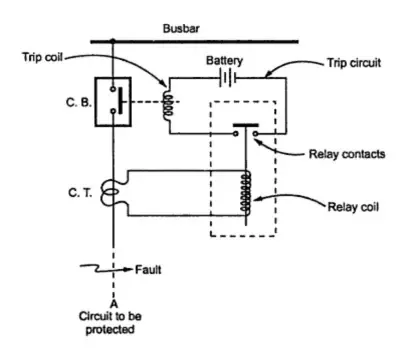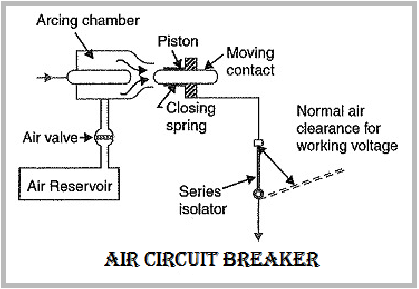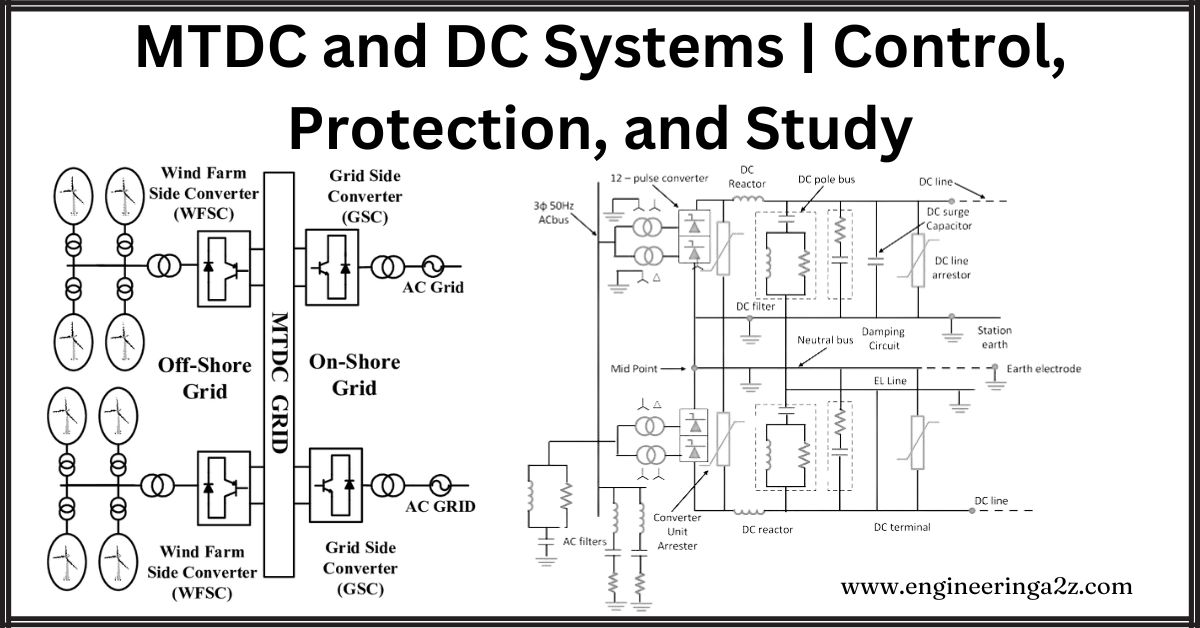
Table of Contents
Circuit Breaker
Circuit breaker is a mechanical device that designed to makes or breaks a electrical circuit either manually or remote control under abnormal or normal conditions. The circuit breaker is mainly designed for closing or opening of an electrical circuit, thus protects the electrical system from damage.

Types of circuit breakers
- Air circuit breaker (ACB)
- Oil circuit breakers (OCB)
- Sulphur hexafluoride circuit breakers (SF6)
- Vacuum circuit breaker (VCB).
1. Air circuit breaker
In these circuit breakers , compressed air (18 to 20 kg/cm2) is employed for arc extinction . When the contacts are separated, arc is struck and the blast valve is opened. The air blast cools the arc and sweeps away the ionised medium established between the contacts. This increases the dielectric strength of the medium and prevents the re-striking of the arc . Thus, the arc is extinguished and current is obstructed. These are operating at 132kv to 400kv.

Advantages of air circuit breaker
- No risk of fire.
- Fast operation.
- Less maintenance.
- Less costly.
- Free availability of the interrupting medium.
Disadvantages of air circuit breaker
- Maintenance of compressor is required.
- Produces a high level of noise.
- Problem of re-striking voltage.
- Air leaks at the pipe line fittings.
2. Oil circuit breaker
In the oil circuit breaker, the energy of an arc is used to break the oil molecules to generate the hydrogen gas. The generated hydrogen is used to cool & compress the arc. As the result the arc get extinguished. Oil has the better insulating property then air. In this the insulating oil can be used as an arc quenching medium.

Advantages of oil circuit breaker
- Arc is absorbed in decomposing of oil.
- The oil has high dielectric strength.
- The oil used is very good insulator (such as transformer oil).
Disadvantages of oil circuit breaker
- They are bulky.
- Risk of fire.
- Operation is not clean.
- They have long arcing time.
3. Sulphur hexafluoride circuit breakers (SF6)
SF6 is an inert gas having good dielectric strength. The dielectric strength of the gas increases with pressure. The two contacts i.e. one moving contact and other is fixed contact of the circuit breaker are placed inside the chamber having SF6 gas . When the fault occurs, the moving contact is separated from the fixed contact. Thus the moving contact cause the SF6 gas to flow to the arc interruption chamber which cause the lightning of arc. Due to the lightning of arc the resistance is increased as a result of this the voltage drop increased & the system voltage is not able to maintain this drop & the arc get extinguished.

Advantages of SF6
- Less maintenance is required.
- No risk of fire.
- Small in size.
- High dielectric strength.
- They give silent operation.
Disadvantages of SF6
- High capacity of air compressor is required.
- Cost is high.
- A special facility requires for transportation.
- Sealing problem of the gas.
4. Vacuum circuit breaker (VCB)
In this type of circuit breaker vacuum medium is used for quenching of arc. High vacuum possesses extremely high dielectric strength at zero current, the arc is extinguished very quickly in V.C.B. Vacuum circuit breaker is worked on the method of current chopping. When two current carrying contact are separated in a vacuum an arc is drawn between them. This arc is surrounded by a vacuum at a pressure of about from 10-4 to 10-8 bar. In this type of circuit breaker a small gas is required between moving & fixed contact to extinguished the arc therefore the size of circuit breaker also reduced.

Advantages of VCB
- The size is small.
- no risk of fire.
- fast operation.
- less maintenance.
- it has long life.
- noise less operation.
Disadvantages of VCB
- It is uneconomical at voltages exceeding 38 kv.
- The cost is higher.
- loss of vacuum due to transit damage.
Read Also :
- MCB : Miniature Circuit Breaker
- Main Components of Overhead Lines
- B.Tech – MDU Previous Year Question Papers Download





Comments (3)
Hi there! This is my 1st comment here so I just wanted to give a quick shout out and say
I genuinely enjoy reading through your posts. Can you recommend any other blogs/websites/forums
that cover the same subjects? Thanks a lot!
Its not my first time to pay a visit this web page, i am visiting this site
dailly and take nice information from here all the time.
Hello there, You have done an incredible job.
I’ll certainly digg it and personally suggest to my friends.
I am sure they’ll be benefited from this site.